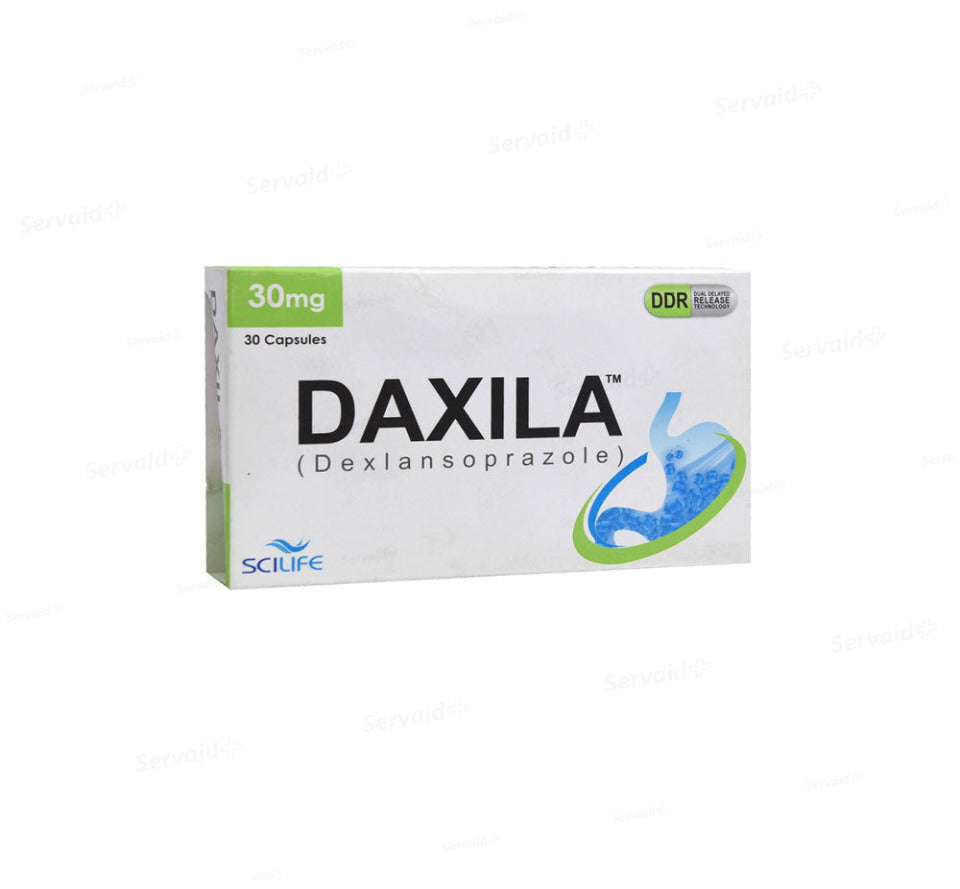Description
Description
SPECIFICATION
30mg & 60mg
Generics
Dexlansoprazole
About
Dexlansoprazole belongs to a class of antisecretory compounds, the substituted benzimidazoles, that suppress gastric acid secretion by specific inhibition of the (H+, K+)-ATPase at the secretory surface of the gastric parietal cell. Dexlansoprazole has been characterized as a gastric proton-pump inhibitor, in that it blocks the final step of acid production
Indication
Dexlansoprazole is indicated in patients 12 years of age and older:• For healing of all grades of erosive esophagitis (EE) for up to eight weeks.• To maintain healing of EE and relief of heartburn for up to six months.• For the treatment of heartburn associated with symptomatic non-erosive gastroesophageal reflux disease (GERD) for four weeks.
Side Effects
Common : Diarrhea, abdominal pain, nausea, upper respiratory tract infection, vomiting and flatulence. Less Common : Anemia, lymphadenopathy, angina, arrhythmia, bradycardia, chest pain, edema, myocardial infarction, palpitation, tachycardia, ear pain, tinnitus, vertigo, goiter, eye irritation, eye swelling, abdominal discomfort, abdominal tenderness, abnormal feces, anal discomfort, Barrett’s esophagus, bezoar, abnormal bowel sounds, breath odor, colitis microscopic, colonic polyp, constipation, dry mouth, duodenitis, dyspepsia, dysphagia, enteritis, eructation, esophagitis, gastric polyp, gastritis, gastroenteritis, gastrointestinal disorders.
Drug Interactions
Rilpivirine, atazanavir and nelfinavir , Saquinavir , Warfarin , Methotrexate , Digoxin , iron salts, erlotinib, dasatinib, nilotinib, mycophenoloate mofetil, ketoconazole/itraconazole , Tacrolimus , tetrahydrocannabinol (THC) , CYP2C19 or CYP3A4 Inducers (St. John’s Wort, rifampin) , CYP2C19 or CYP3A4 Inhibitors (Voriconazole)
When not to Use
Dexlansoprazole is contraindicated: • In patients with known hypersensitivity to dexlansoprazole or to any excipient of the product. • With rilpivirine-containing products. • In patients with severe hepatic impairment.
Precaution
Use of proton pump inhibitors (PPIs) may increase risk of Clostridium difficile-associated diarrhea, especially in hospitalized patients. Patients should use the lowest dose and shortest duration of PPI therapy appropriate to the condition being treated.

